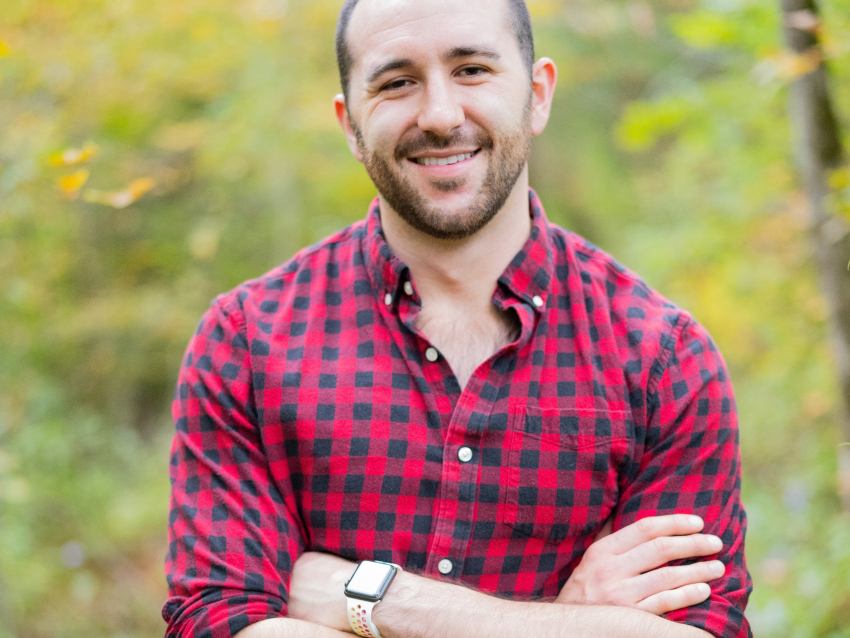
'Pride is a celebration of all people' says UKCOP Student Success & Wellness Coordinator
This June, the University of Kentucky College of Pharmacy is featuring the stories of our LGBTQ* community. We spoke with people from within our college and around UK to reflect on what Pride Month means to them.
Drew Ritzel is the Coordinator of Student Success and Wellness for the UK College of Pharmacy. Originally from Bellbrook, Ohio, he joined the College of Pharmacy in September 2017 and has called Kentucky home for the last 10 years.
In what ways do you feel the College has helped create a sense of belonging?
RITZEL: The College of Pharmacy has always stood out as a college that pushes further. We not only create a seat at the table, but we actively invite you and make sure that your voice is heard. But more than anything, the members of the College of Pharmacy truly care for one another. When I lost my partner in 2019, members of this college stepped up to support me in ways that I never thought possible. Through one of my hardest times, the College of Pharmacy showed how much they care for me and my family. I am truly grateful for the compassionate students, faculty, and staff who I get to work with every day.
What does “pride” mean to you?
RITZEL: Pride is an opportunity to celebrate your authentic self. It is a celebration of a community that has fought for equality and acceptance. Pride is love.
What is your favorite thing about Pride Month?
RITZEL: My favorite thing about Pride Month is the sense of community. Pride is a celebration of all people, inclusive of sexual orientation, gender identity, gender expression, race, cultural background – the list goes on. It is a strong, beautiful community that uses love to strengthen each of us.
What gives you hope these days?
RITZEL: I find hope in the continued efforts to improve our world. Our society is not perfect – in fact, we are far from it. But every time I see the hope and inspiration of passionate people who want to make a difference in this world, I become inspired and hopeful for a better future.
How does your identity impact your work?
RITZEL: Within my work, I cherish the opportunity to help others on their path to self-discovery and learning. While academics are part of higher education, the true gem is the growth that happens within your own belief system and identity. As a gay man, I understand what it is like to be misunderstood. People come from all types of backgrounds. Rather than using differences to divide us, I try to create opportunities for empathy and understanding.
What influenced you to come out?
RITZEL: Moving away for college was an opportunity for me to learn more about myself. I grew in so many ways as a person. In finding my truth, I found myself coming to terms with my own sexuality. I had developed feelings for someone and decided that I could no longer keep who I was a secret. I first came out to my best friend, then to my mother. Then slowly I let more people in my life know the true me.
What would you say to someone who is unsure about coming out?
RITZEL: Be patient with yourself. Coming out can be a scary process. You will know when you are ready to take that step. When you are ready, start with a close friend, family member, or mentor who you trust. Find a support system that you can lean on. Most of all, be true to yourself.
